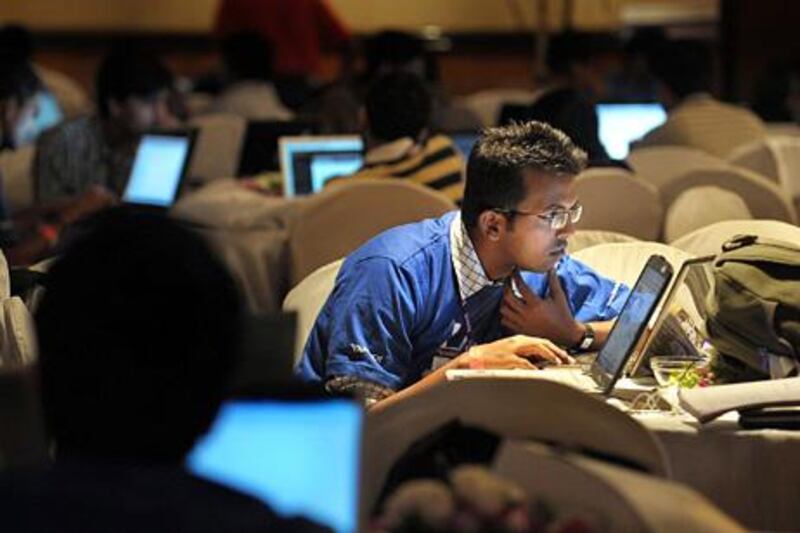NEW DELHI // India on Friday defended itself against accusations of heavy-handed online censorship, saying it had been successful in blocking content blamed for fuelling ethnic tensions.
The government over the past week has ordered Internet service providers to block 309 webpages, images and links on sites including Facebook, Twitter, Wikipedia, news channel ABC of Australia and Qatar-based Al-Jazeera.
The orders were an effort to halt the spread of "hateful" material and rumours that Muslims planned to attack students and workers who have migrated from the northeast region to live in Bangalore and other southern cities.
"We have met with success. These pages were a threat to India's national security and we demanded their immediate deletion," Kuldeep Singh Dhatwalia, a spokesman for India's home ministry, told AFP.
"Spreading rumours to encourage violence or cause tension will not be tolerated. The idea is not to restrict communication."
But Twitter users, legal experts and analysts criticised the government's approach, which appeared to have resulted in only partial blocking of material, much of which was still accessible.
"The officials who are trusted with this don't know the law or modern technology well enough," Pranesh Prakash, programme manager at the Centre for Internet and Society research group, told AFP.
"It is counter-productive. I accuse them of monumental incompetence, given that the main problem is that they are getting really bad advice.
"I hope that this fiasco shows the folly of excessive censorship and encourages the government to make better use of social networks and technology to reach out to people."
Among the content blocked were photographs by AFP and other news agencies from Myanmar in the British Daily Telegraph, a parody Twitter account pretending to be from Prime Minister Manmohan Singh and dozens of YouTube videos.
ABC issued a statement saying it was "surprised by the action" after content on its website about unrest in Myanmar between Muslims and Buddhists was included on the blocking list.
Photographs of clashes in Myanmar are thought to have been circulated on the Internet with fake captions claiming the scenes were from the northeastern Indian state of Assam, where 80 people have died in recent ethnic violence.
Vivek Sood, senior Supreme Court lawyer and an author on Internet legalisation, said he believed the government was acting unlawfully in blocking the online material.
"It's completely illegal under the Indian IT Act," he told The Economic Times. "It's a gross abuse of power by the government."
Indian journalist Kanchan Gupta, who is often critical of the government, had his Twitter account targeted by a government blocking order in a move he called a "political vendetta".
The government has blamed Internet activity for fanning fears that resulted in tens of thousands of migrants fleeing back to the northeast last week from Bangalore and elsewhere.
Al Jazeera webpages on the blocking list, including a report on the exodus from Bangalore, appeared unaffected by the government orders, the channel's Delhi bureau chief Anmol Saxena told AFP.
Ministers earlier complained they had not received cooperation from websites and social network groups.
The government on Thursday said Twitter had agreed to remove six fake accounts parodying Prime Minister Singh.
United States State Department spokeswoman Victoria Nuland said that as India "seeks to preserve security, we are urging them also to take into account the importance of freedom of expression in the online world."





